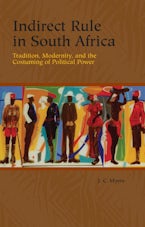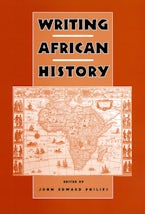
Title Details
282 Pages
22.8 x 15.2 cm
10 line illus.
Series: Rochester Studies in African History and the Diaspora
Series Vol. Number:
57
Imprint: University of Rochester Press
South Africa and the World Economy
Remaking Race, State, and Region
- Description
- Contents
- Reviews
This volume chronicles the volatile history of the resurgence of South Africa, once an international pariah, as a respected and influential African state.
Once an international pariah, South Africa has emerged as a respected and influential African state, projecting its economic and political power across the continent. South Africa and the World Economy: Remaking Race, State, and Region chronicles the volatile history of this resurgence, from the nation's rise as an industrialized, white state and subsequent decline as a newly underdeveloped country to its current standing as a leading member of theGlobal South. Departing from much of the latest scholarship, which examines South Africa as a discrete national case, this volume places the country in the global social system, analyzing its relationships with the colonial powersand white settlers of the early twentieth century, the costs of the neoliberal alliances with the North, and the more recent challenges from the East. This approach offers a bold reinterpretation of South Africa's developmental successes and failures over the last century -- as well as clear yet contentious lessons for the present.
William G. Martin is chair of the Department of Sociology at Binghamton University, coeditor of From Toussaintto Tupac: The Black International since the Age of Revolution, and coauthor of Making Waves: Worldwide Social Movements, 1760-2005.
Once an international pariah, South Africa has emerged as a respected and influential African state, projecting its economic and political power across the continent. South Africa and the World Economy: Remaking Race, State, and Region chronicles the volatile history of this resurgence, from the nation's rise as an industrialized, white state and subsequent decline as a newly underdeveloped country to its current standing as a leading member of theGlobal South. Departing from much of the latest scholarship, which examines South Africa as a discrete national case, this volume places the country in the global social system, analyzing its relationships with the colonial powersand white settlers of the early twentieth century, the costs of the neoliberal alliances with the North, and the more recent challenges from the East. This approach offers a bold reinterpretation of South Africa's developmental successes and failures over the last century -- as well as clear yet contentious lessons for the present.
William G. Martin is chair of the Department of Sociology at Binghamton University, coeditor of From Toussaintto Tupac: The Black International since the Age of Revolution, and coauthor of Making Waves: Worldwide Social Movements, 1760-2005.
Introduction: Rethinking State, Race, and Region
World Crisis, Racial Crisis
South Africa First!
State Enterprise
1948: Semiperipheral Crisis
A Mad New World
Creative Destruction
Looking Forward, North and East
Notes
Bibliography
Index
World Crisis, Racial Crisis
South Africa First!
State Enterprise
1948: Semiperipheral Crisis
A Mad New World
Creative Destruction
Looking Forward, North and East
Notes
Bibliography
Index
"Martin offers us a sophisticated and well-documented historical analysis of South Africa from 1870 to the present, insisting at all points on showing how this history can be understood only by placing it within the patterns and constraints of the world-economy. His very different approach helps to illuminate not only South Africa's trajectory but that of the world as whole. Bravo! --Immanuel Wallerstein, Yale University" .
"Using a world-historical approach, this book challenges the dominant narrative of the left persuasion, which posits the South African state as rooted in a unique Afrikaner nationalist history. It also gives new insights into the contradictory relationship between South Africa and the southern Africa region, highlighting the importance of race in state formation at the national, regional, and global level. An important volume. --Sam Moyo, executive director of the African Institute for Agrarian Studies (Harare, Zimbabwe); former president," CODESRIA
Hardcover
9781580464314
May 2013
£97.00 / $115.00
Ebook (EPDF)
9781580467933
May 2013
£24.99 / $29.95
Title Details
282 Pages
2.28 x 1.52 cm
10 line illus.
Series: Rochester Studies in African History and the Diaspora
Series Vol. Number:
57
Imprint: University of Rochester Press















